by: SavveyMoney
Frugal February Challenge
Frugal February
by: banzai
Recognizing and Avoiding Scams
Con artists cheat Americans out of billions of dollars every year. Recognizing red flags for potential scams can help protect you, your loved ones, and your hard earned cash.
by: IAMT
Keep or Toss: How Long Should I Hang Onto My Financial Documents?
Every year, it’s nice to do a bit of “financial spring cleaning” and declutter your filing cabinet, your desk drawers, and the various hiding places where miscellaneous scraps of paper tend to accumulate and multiply. Read on to find out what you should be saving, and what’s OK to shred.
by: Savvymoney
5 Financial New Year’s Resolutions
Keeping Your Money Safe
Imagine this: you are out for a walk and you find a stack of shiny gold bars. Where do you put your treasure to keep it safe?
5 Identity Theft Jackpots (and How You Can Safeguard Against Them)
Identity theft is nothing new, and yet it still manages to cost its victims billions of dollars (yes, that’s billions with a “b”) globally each year—not to mention the time and hassle involved in recovering a stolen identity.
by: SavvyMoney
5 points of Financial Data you should check before end of year.
Prepare your tax documents – One third of Americans file their taxes at the last minute. Filing late could cost you additional penalties, interest, or fees. Most common tax forms include:Wage information
Photo identification
Personal information for all filers
Previous year(s) tax returns
Charitable donations
Childcare or education expenses
Itemized medical expenses
5 Totally Free Things You Can Do to Support Your Local Economy
Supporting your local community is a positive thing—it builds relationships, it strengthens the local economy, and it makes your neighborhood a happier and healthier place to work and play. The most obvious way to support your surrounding community is with the choices you make with your dollars. Money you spend in your community is recirculated in the local economy instead of being extracted from it. This translates into more local jobs, more opportunities for local business owners and service providers, and more tax dollars that stay in the community. Supplementing your grocery shopping list with fresh farmers’ market finds, choosing independent cafés and restaurants over national chains, and purchasing art and gifts from local vendors are all simple ways to support your local economy.
by: Banzai
Filling Out the FAFSA
The Free Application for Federal Student Aid (FAFSA) is an application for financial aid made up of scholarships and grants that the government awards to students based on their needs.
by: Banzai
The Cost of a Mortgage
A mortgage is likely going to be one of the largest loans you'll take out in your life. It's essential to understand all that goes into the cost and your responsibility in paying it back.



